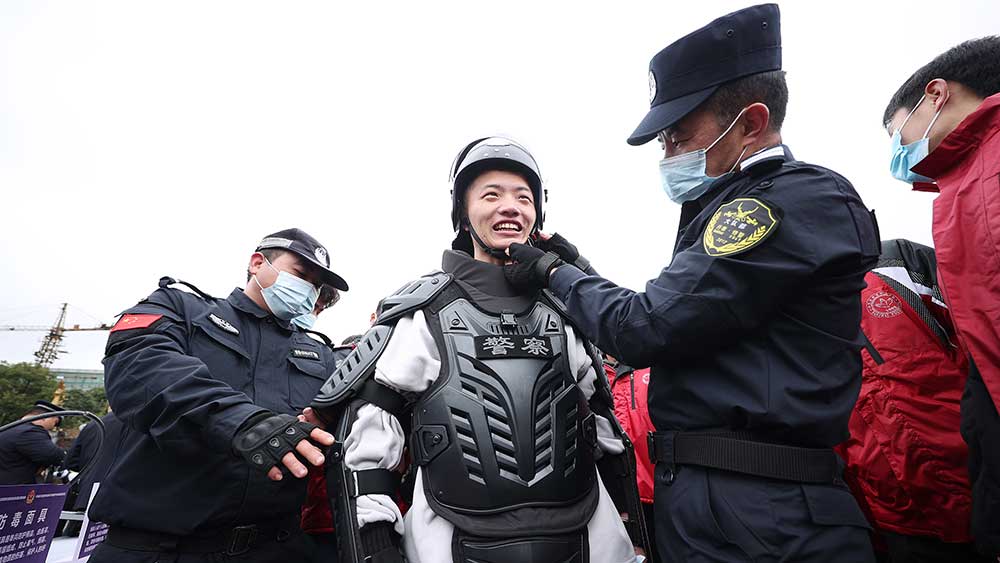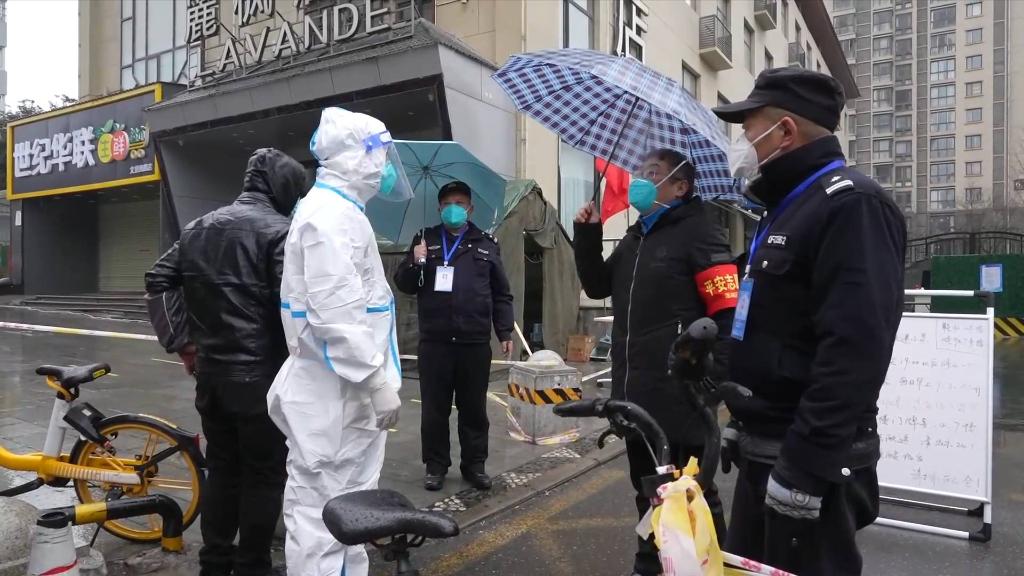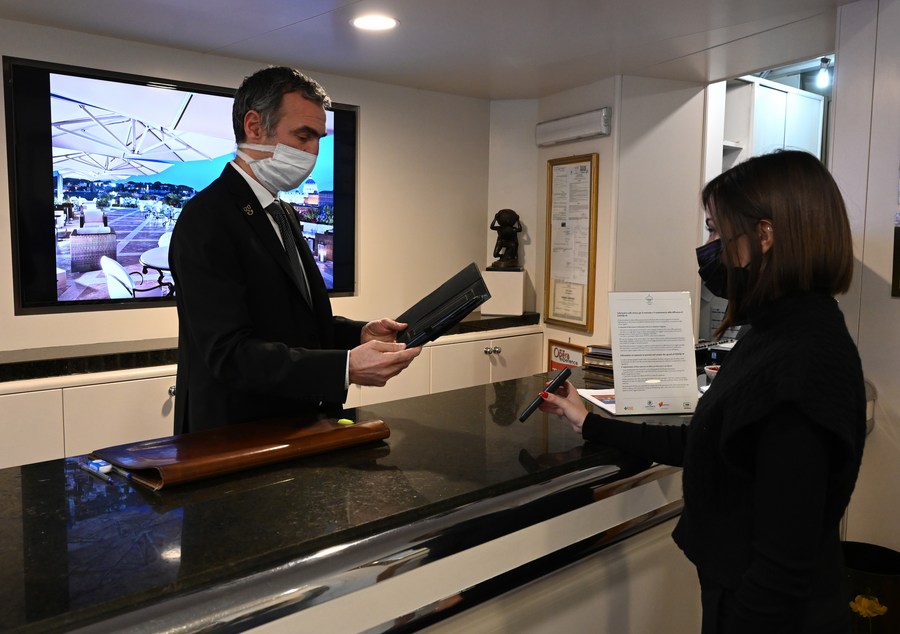
A staff member checks the "super green pass" of a woman at a hotel in Rome, Italy, on Jan. 10, 2022. (Photo by Alberto Lingria/Xinhua)
"It makes no sense to close schools while leaving other activities open, and we currently have no reasons to impose a general closure," Prime Minister Mario Draghi explained.
ROME, Jan. 10 (Xinhua) -- Italy's main priority in the phase of the COVID-19 pandemic is to keep schools open, Prime Minister Mario Draghi said Monday, meanwhile defending the decision to make the vaccine mandatory for people aged 50 and above.
An increase in the practice of distant learning would be likely in the next weeks due to the Omicron variant, but "a widespread use of distance learning" must be avoided, Draghi told a joint press conference with health and education ministers.
Under current anti-pandemic rules, a classroom has to be put entirely in distant learning mode when a certain number of pupils test positive.
"It makes no sense to close schools while leaving other activities open, and we currently have no reasons to impose a general closure," he explained.
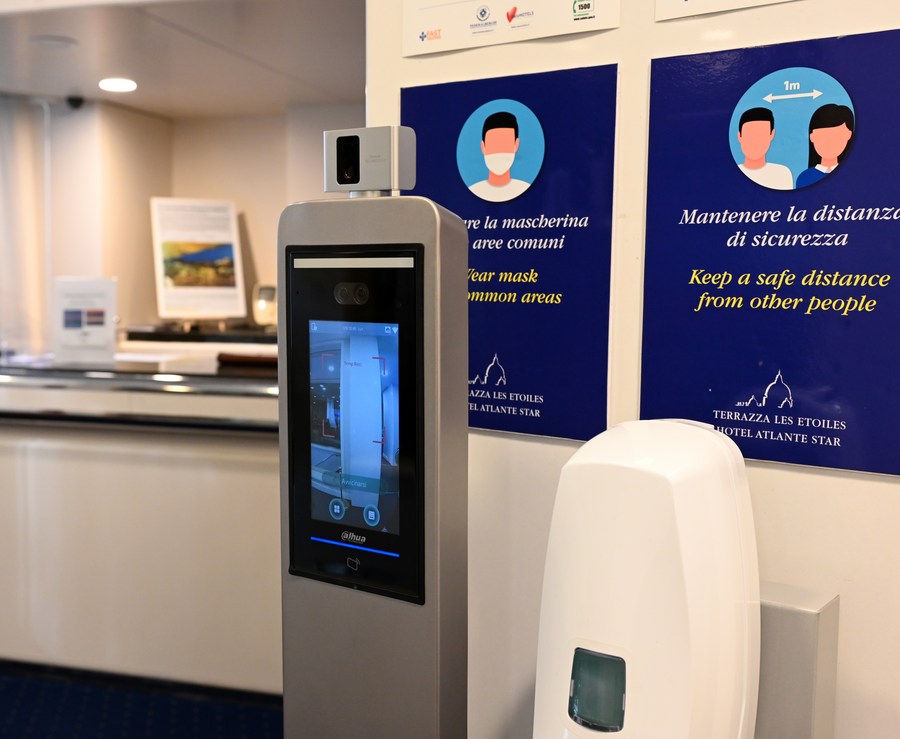
Photo taken on Jan. 10, 2022 shows a machine monitoring guest's temperature at a hotel in Rome, Italy. (Photo by Alberto Lingria/Xinhua)
He stressed that young people have been heavily affected by the closures called on schools and universities since the onset of the pandemic in the country.
Education Minister Patrizio Bianchi said some 6 percent of teaching staff and 4.5 percent of students missed the reopening of schools because they tested positive for COVID-19.
Draghi's decision to explain the latest package of restrictions in a press conference came amid tensions between central and regional authorities on whether to let schools reopen after the Christmas and New Year holiday.
Another point of friction was the decision to make vaccines mandatory for people aged 50 and above. Italy was among the few countries in Europe to do so, and the move was controversial since vaccination has been mandatory only for specific working categories in the country.
Draghi said the rule was introduced "on the base of the freshest pandemic data," which showed a surge in COVID-19 infections but less severity in the new cases.
The current pressure on the national health system, he pointed out, was largely to be ascribed to unvaccinated people.
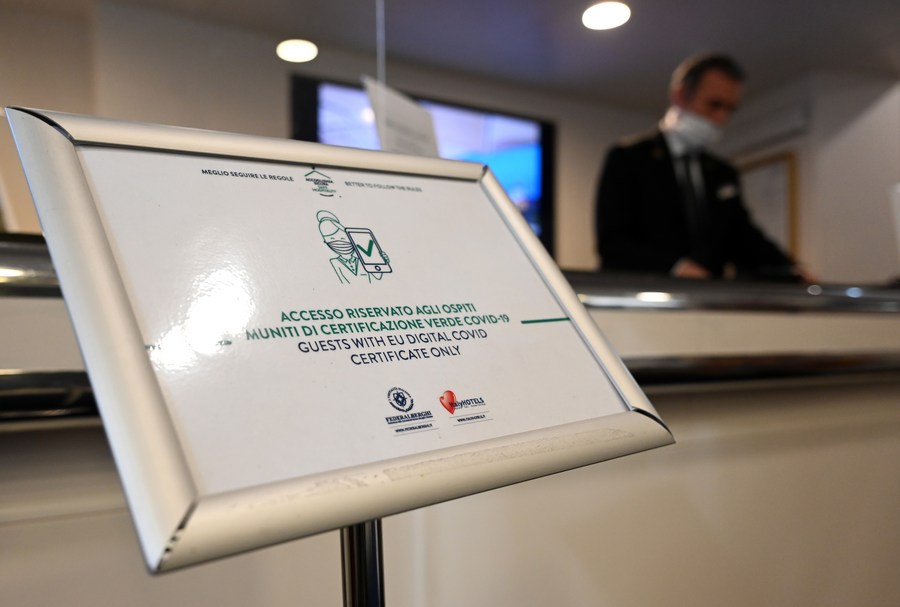
A notice board reading "guests with EU digital COVID certificate only" is seen at a hotel in Rome, Italy, on Jan. 10, 2022. (Photo by Alberto Lingria/Xinhua)
Unvaccinated people currently made some two-thirds of all COVID-19 patients in intensive care units, said Health Minister Roberto Speranza.
According to official data, more than 86 percent of the population aged above 12 have been fully immunized, and 59 percent have also received the booster shot.
The latest rules made daily life harsher for anti-vax people, who are banned from entering restaurants, bars, public offices and accessing public transports.
On Monday, Italy registered more than 101,000 new cases against the previous day.

A "super green pass" scanner machine is seen at a hotel in Rome, Italy, on Jan. 10, 2022. (Photo by Alberto Lingria/Xinhua)■

